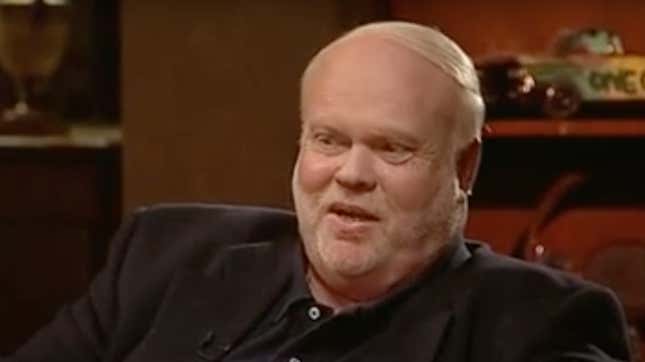
Donald Foss, the billionaire founder of the subprime auto lender Credit Acceptance, died Sunday, according to Crain’s Detroit Business. The cause was complications of cancer. Foss was 78.
In these parts, Foss is best known for starting a company that ensnared thousands of people with high-interest debt, and weaponized a Michigan court to collect on a lot of it. Foss was CEO of that company, Credit Acceptance, from 1972 to 2002, and chairman until 2017. The company’s motto is “We change lives!,” which is certainly true, even if many of the lives Credit Acceptance changed were for the worse.
Take the case of Richard Parker, who got a loan from Credit Acceptance in 1991 for a 1988 Chevy Blazer. Credit Acceptance financed $9,198 of that purchase at an interest rate of 22 percent over a loan-term of 36 months. After going on disability and falling behind on his payments, Credit Acceptance repossessed the Blazer, but the debt never went away, and, in fact, kept growing over the ensuing years. As Jalopnik reported in 2018:
By August 1999, when Credit Acceptance asked the court again to order his income tax returns garnished, Parker’s balance had increased to $16,781. By April 8, 2004, thanks to the exorbitant interest rate applied to his original sales agreement, it spiked again to $25,595.
Court records show that a garnished payment was applied toward the balance on April 21, 2004—which Credit Acceptance took as “acknowledgment of the continuing vitality of the debt” underlying the initial judgment, the company wrote in a court filing, meaning it believed Parker was still good for the loan.
“What they do, right before it drops off, they just re-file it again,” Parker said. “That’s how they keep doing it, and I never understood how they could do it.”
That’s because Michigan law allows it. Garnishments can happen for 10 years, the statute says, but because of Parker’s 2004 payment, Credit Acceptance argued in court a year later that the judgment against him for the remaining balance should be renewed. It was effectively a request to continue punishing him for doing what’s ostensibly the right thing: if Credit Acceptance had been unsuccessful in obtaining any money through a garnishment, the lender would no longer have had legal recourse for the outstanding balance of the loan.
On April 22, 2005, the court again sided with the lender, ordering Parker to continue paying back a judgment that had by then grown to $27,315.
Credit Acceptance didn’t let up. In October 2012, it filed another request with the court to garnish Parker’s income taxes. At that point, he’d had $17,575.32 garnished—nearly double the amount of the original loan—but due to the interest costs accrued from the original judgment, records show, he still had $9,781.96 to go.
The last garnishment request Credit Acceptance made was in October 2014, after Parker had an additional $9.40 garnished, leaving his remaining judgment balance at $9,864.17—more than the original loan he’d received from the lender 20 years prior.
Credit Acceptance didn’t respond to a request for an interview nor a series of questions from Jalopnik.
And while Parker’s case was an extreme example, in its obituary, Crain’s notes that Credit Acceptance, “has settled multiple lawsuits with myriad states to the tune of tens of millions of dollars in recent years, including allegations that it made deceptive loans, misled investors and engaged in unfair collection practices.”
In a release on Credit Acceptance’s website, the company said that Foss had made some philanthropic efforts in recent years. The company also gave the following statement:
Don has left behind a lifetime of hard work, which turned Credit Acceptance into one of the largest auto finance companies in the country. He was truly an American Entrepreneurial Icon, and his story epitomizes the great American Dream. Don’s death is a great loss, and he will be missed by many.